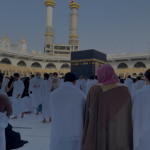What is Islam and its Core Beliefs?
Islam is built upon the belief in the oneness of God (Allah), who is merciful and all-powerful. Muslims believe that Muhammad is the last of a series of prophets, which includes figures like Adam, Noah, Abraham, Moses, and Jesus. The Quran, regarded as the literal word of God, is the central religious text, with additional guidance found in Hadith (recorded sayings and actions of Prophet Muhammad).
The Five Pillars of Islam
These are the core practices that define a Muslim’s faith and actions:
- Shahada (Faith):
The declaration of faith, stating that “There is no god but Allah, and Muhammad is His messenger.” This is the foundational creed of Islam. - Salat (Prayer):
Muslims pray five times a day facing Mecca. These prayers are performed at dawn, noon, mid-afternoon, sunset, and night. Salat strengthens one’s relationship with Allah and serves as a reminder of God’s presence. - Zakat (Charity):
Zakat is an obligation to give a portion of one’s wealth to those in need, typically 2.5% of accumulated savings annually. It purifies wealth and serves as a means of social justice. - Sawm (Fasting):
During the month of Ramadan, Muslims fast from dawn until sunset. This involves abstaining from food, drink, and other physical needs. Fasting is a time for self-reflection, empathy for the less fortunate, and spiritual growth. - Hajj (Pilgrimage):
The Hajj is a pilgrimage to Mecca, which every Muslim who is physically and financially able must undertake once in their lifetime. The journey includes several rituals that commemorate the actions of Prophet Ibrahim and his family, and it symbolizes unity, equality, and submission to God.
Key Concepts in Islam
- Tawhid (Oneness of God):
The central concept in Islam is that God is absolutely one, indivisible, and unique. There is no other deity but Allah. - Prophethood (Risalah):
Muslims believe that Allah sent prophets throughout history to guide humanity. Muhammad (PBUH) is considered the final prophet, but the earlier messages of prophets like Moses and Jesus are also respected, though they are believed to have been altered over time. - Day of Judgment (Qiyamah):
Muslims believe in a life after death, where all humans will be judged by Allah based on their actions in this world. Those who followed God’s guidance will be rewarded with eternal life in paradise, while those who rejected it will face punishment in hell. - Halal and Haram (Permissible and Forbidden):
In Islam, actions, food, and behavior are categorized into “halal” (permissible) and “haram” (forbidden). These guidelines are based on the Quran and Hadith and cover all aspects of life.
The Quran
The Quran is divided into 114 chapters called Surahs, each containing verses called Ayahs. It is considered the literal word of God, revealed to Prophet Muhammad through the Angel Jibril (Gabriel). The Quran addresses spiritual, ethical, social, and legal issues, providing guidance for Muslims in all areas of life.
Hadith and Sunnah
The Hadith are the recorded sayings, actions, and approvals of Prophet Muhammad (PBUH). They help explain the teachings of the Quran and provide context for Islamic practices. The Sunnah refers to the practices and traditions of Prophet Muhammad (PBUH), which Muslims try to emulate in their daily lives.
Islamic Law (Sharia)
Sharia is the body of law derived from the Quran, Hadith, and Islamic tradition. It covers all aspects of life, including worship, family law, dietary laws, and criminal justice. It aims to guide Muslims to live a righteous and just life.
Mosques and Islamic Practices
Muslims gather in mosques for communal prayers, especially on Fridays for Jumu’ah (the Friday prayer). Mosques are places of worship, education, and community gatherings. Additionally, Islamic practices like Tawakkul (trust in God) and Dua (personal supplication) help strengthen the bond between a Muslim and Allah.
Islamic Festivals
- Eid al-Fitr: Celebrated at the end of Ramadan to mark the breaking of the fast.
- Eid al-Adha: Commemorates the willingness of Prophet Ibrahim (Abraham) to sacrifice his son in obedience to God. Muslims perform the act of animal sacrifice and give to charity.
Islamic Contributions to Civilization
Islamic civilization has made significant contributions to various fields, including:
- Science and Medicine: Scholars such as Al-Razi and Ibn Sina made advancements in medicine and chemistry.
- Mathematics: The invention of algebra (from the Arabic word “al-jabr”) and advancements in geometry and astronomy.
- Philosophy: Thinkers like Al-Farabi, Avicenna, and Averroes shaped both Islamic and Western philosophical thought.
- Art and Architecture: Islamic architecture, including the construction of mosques, palaces, and intricate geometric patterns, has influenced global architectural styles.
Conclusion
Islam is a rich and diverse faith with a long history of spiritual, intellectual, and cultural development. Its teachings provide a framework for how to live a meaningful life and serve others. Muslims around the world share a sense of brotherhood and commitment to following the guidance of Allah as outlined in the Quran and the example set by Prophet Muhammad (PBUH).












